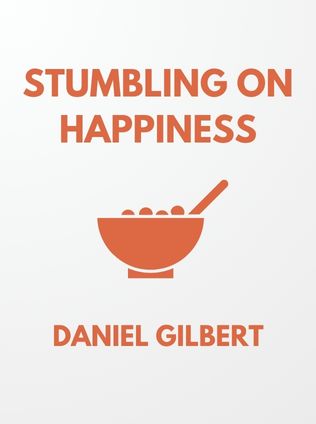
Stumbling on Happiness
By Daniel Gilbert
Published 05/2006
About the Author
Daniel Gilbert is a renowned professor of psychology at Harvard University, where he has dedicated his career to understanding the human mind, particularly our emotions and how we predict our own happiness. Gilbert is celebrated for his ability to translate complex psychological concepts into engaging and accessible narratives, making profound insights into human nature available to a wide audience. His research focuses on affective forecasting, the process by which people predict their future emotional states, and he has become a leading voice in understanding why we often fail to make choices that truly lead to happiness.
Main Idea
In “Stumbling on Happiness,” Daniel Gilbert explores the intricate ways our minds fabricate memories, perceptions, and future imaginations, leading us to make decisions that do not necessarily optimize our happiness. Despite our best efforts and intentions, Gilbert argues, our mental processes are riddled with biases and errors that prevent us from accurately predicting what will make us happy. Instead of carefully crafting our future happiness, we often find ourselves stumbling upon it by chance.
Gilbert’s central thesis is that our minds are not the reliable tools we believe them to be when it comes to predicting future happiness. This is because our memories, perceptions of the present, and imaginations of the future are all heavily constructed by our brains, often leading us astray.
Table of Contents
- Fabricated Memories
- Fabricated Present Perceptions
- Fabricated Future Imaginations
- Poor Decision-Making Based on Fabrications
- Conclusion
Fabricated Memories
One of the most fascinating aspects of our minds is how they handle memories. According to Gilbert, when we recall past events, we do not retrieve them like files from a cabinet. Instead, our brains reconstruct memories, filling in gaps with assumed details. This process is necessary because we do not store every sensory detail of an event. Rather, we keep snippets—fragments of narratives that our brains then embellish to create a coherent story.
Gilbert illustrates this with a simple example: Imagine a day at the zoo. You might remember that it was hot and that the pandas were asleep. However, the mind does not store the full sensory experience—how the heat felt on your skin, or the exact position of the pandas. When you recall this day, your brain fills in these gaps, perhaps imagining that your ice cream melted quickly, or that the pandas were particularly cute. These added details might not be true, but they make the memory feel complete.
This phenomenon explains why two people can have different memories of the same event. Each person's brain fills in the blanks differently, leading to variations in how the event is remembered. Gilbert argues that these fabricated memories can significantly impact our decisions, as we often base our future actions on our recollection of past experiences.
“Memory is a sculptor rather than a camera, and the memories it produces are less like snapshots than like statues: more interpretation than imitation.” – Daniel Gilbert
These constructed memories can lead to what Gilbert describes as “memory-based errors.” For instance, if you misremember enjoying a challenging hike, you might decide to take on an even more strenuous one, only to find yourself unhappy during the experience. The memory of the first hike was altered by your mind to fit a more pleasant narrative, leading you to a decision that ultimately does not bring the expected happiness.
To further illustrate:
Sign up for FREE and get access to 1,400+ books summaries.
You May Also Like
The Subtle Art of Not Giving a F*ck
A Counterintuitive Approach to Living a Good Life
By Mark MansonRich Dad Poor Dad
What the Rich Teach Their Kids About Money - That the Poor and Middle Class Do Not!
By Robert T. KiyosakiHow To Win Friends and Influence People
The All-Time Classic Manual Of People Skills
By Dale CarnegieFreakonomics
A Rogue Economist Explores the Hidden Side of Everything
By Steven D. Levitt and Stephen J. Dubner



















